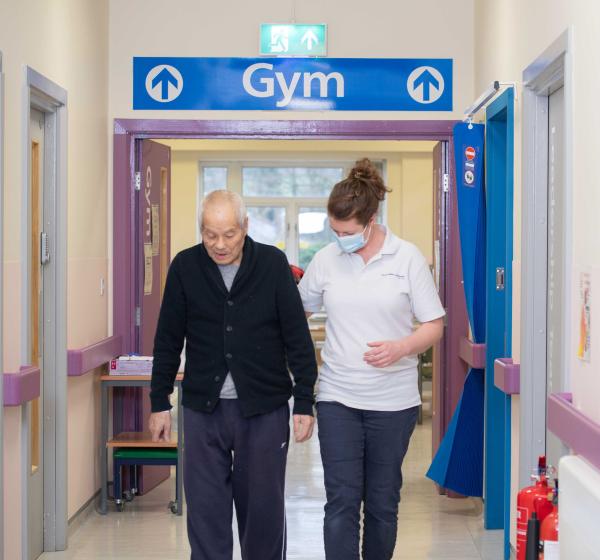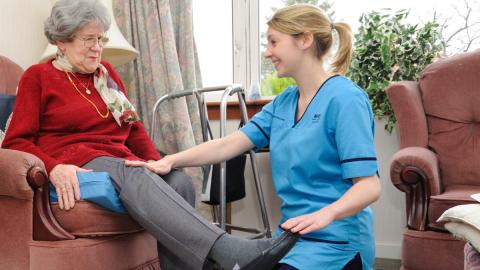Expanding the physiotherapy workforce in Wales will provide more rehab, more proactive care, reduce the unnecessary time patients spend in hospital, and improve GP access

The physiotherapy workforce in Wales has grown by 29 per cent whole time equivalent posts since 2012. Continued workforce growth is essential to meet patient needs and create an equitable health service across Wales.
However, problems with loss of rehab space, staffing levels in the face of overwhelming demand, and pay are all hitting recruitment and retention in the NHS.
Physiotherapy is a profession ready to grow in Wales
There is a planned expansion of AHP posts in primary care across Wales, offering an opportunity to expand the delivery of physiotherapy to the community and closer to home.
Physiotherapy continues to be an attractive career choice. Across the country there are 8.5 physiotherapy degree applications for every university place.
Apprenticeships also stand ready to be part of the solution – providing training and career opportunities for support workers, and registered physios at all levels of practice. But the barriers to capitalising on that potential must first be overcome.
How to create capacity
We are calling on the Welsh Government and the new NHS Wales Executive to maximise on the opportunity of growth in the physiotherapy workforce by increasing the number of NHS posts that meet both patient needs and retain physiotherapy staff through a pipeline of development.
There has been consistent growth in pre-registration commissioned posts year-on-year in Wales and continued growth in commissioning is needed to meet patient needs in the long term.
A level 3 apprenticeship is in place, however our findings indicate only approximately 12 per cent of staff in bands 3 and 4 (in employment during 2017-2021) hold the full diploma. Therefore, the CSP is calling for the expansion of the level 4 apprenticeship scheme for support workers, including a route to pre-reg qualification.
While the physiotherapy workforce has grown, there has not been an equivalent growth in mid-level roles, such as band 6 posts. Investment is needed in bands 6-7 to ensure sustainability, adequate governance, and career progression opportunities.
Physiotherapy staff can also deliver change in the NHS and this can be done by providing a pipeline for advanced clinical practice roles in the community, FCPs in primary care and through supporting and upskilling the non-registered workforce.
Vacancy rates have increased in Wales since the pandemic. It is important that financial pressures on Health Boards do not result in these vacancies becoming long term, as the posts need to be filled to ensure patient needs are met.
What we're asking
- Continue growth of commissioned training places at providers in Wales.
- Expand the number of support workers as a proportion of the physiotherapy workforce. A level 4 apprenticeship scheme should be introduced.
Develop physiotherapy staff to deliver change in the NHS by providing a pipeline for roles such as advanced clinical practice roles in the community to lead transformation of out of hospital care, Musculoskeletal First Contact Physiotherapists in primary care and upskilling the non-registered workforce.
- A HEIW plan for FCP development for AHPs in Wales.
- Improve retention in NHS services, including through better pay and conditions and opportunities for career progression.

